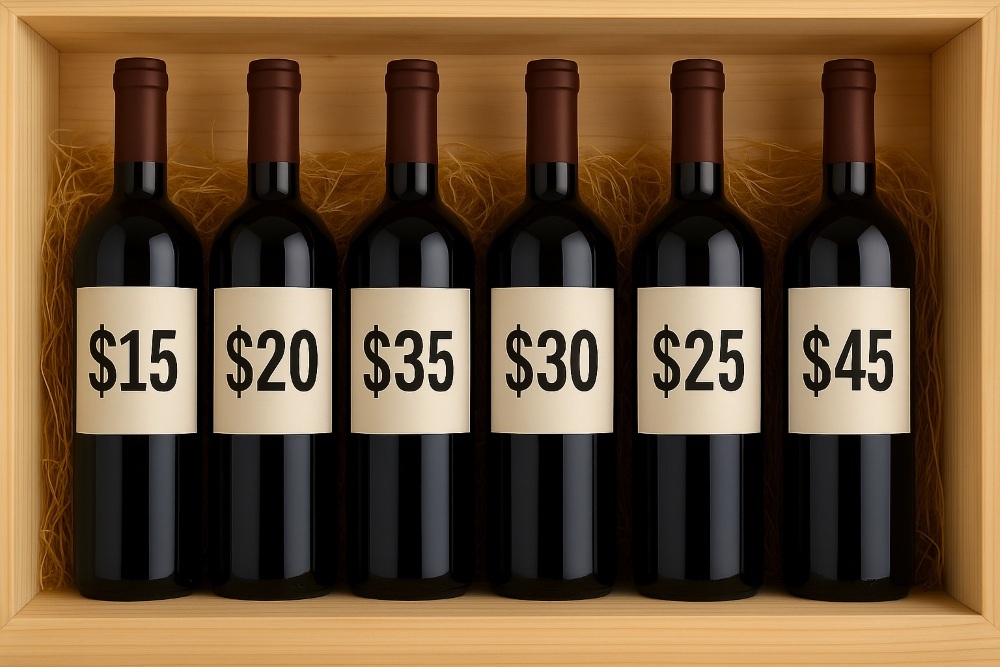There is plenty of conversation about pricing happening right now. It is true that many businesses across different industries are feeling the pressure to play the price game and offer discounts to get work. In a challenging economy that is understandable, but it brings with it some long-term problems. While discounting might solve a short-term sales problem it often sets up bigger issues over time.
Prices are a funny thing and there is always emotion attached to price. It highlights how customers see you and how you see yourself. A contact once said to me “I price my proposals so that at least 50% will reject them based on the cost. It enables me to protect my brand and attract the type of clients that I want.” Probably not a strategy that everyone wants to do but it has worked well for him.
I also remember reading a book about building a consulting business. In it, the author shared a story about meeting a woman at a hotel swimming pool. She mentioned that her husband was a consultant who was so busy he could barely keep up with all his clients. The author suggested she tell her husband to double his prices. She replied, “Oh no, he couldn’t do that he would lose half his clients!” Go figure. FYI Indicator is not planning on following that strategy.
Before you decide about price consider these five important factors.
1. Perception
Pricing has a powerful influence on perception. I once received a bottle of ridiculously expensive wine by mistake. It was given to me by someone who accidentally chose the wrong bottle and gave me her husband’s most prized wine. At the time I thought it was probably a $30 bottle, so I opened it beside a cricket field on a rainy afternoon, and we drank out of plastic cups while waiting for the game to restart. I remember saying at the time that it was quite a nice wine. A couple of weeks later I received a panicked call to ask if I still had the bottle and that is when I discovered that the bottle was worth $2,000. My perception of it changed instantly and no longer thought of it as just “quite nice wine”.
Perception is the same for your products or services. If you position yourself too cheaply people will automatically question the quality, no matter how good your work is.
2. Emotion
Pricing is emotional for both buyer and seller. An ex-colleague of mine always raised his pricing for one customer who always drilled him down on price. After some back and forth they would agree on the original list price and both were satisfied. The customer felt like they had won, and my colleague kept his margin intact.
This shows pricing is all part of a bigger game. People like to feel they have negotiated well but that does not mean you should surrender your value. It is also well known that the biggest emotion that you feel about price is that you have paid too much. People think about losing money much more than making money.
3. Margin
Discounting is a direct hit to your margin. That might feel manageable at the time, but margins are what keep a business sustainable in the long term. Lowering prices can also start a price war especially if your competitors follow your lead. The only real winner in a price war is the customer and if you keep reducing your margin you will eventually run out of room.
Turnover for the vain and profit is for the sane. Once you let margins slip your sustainability becomes a risk. Not to mention the difficulty of getting prices back to what they originally were.
4. Power
In every buyer and seller relationship there is a balance of power. Discounting too quickly often gives that power to the customer. Early in my career I discounted heavily to win a big client. From that moment they expected special treatment, and it was almost impossible to reset expectations. When I finally tried to return to a fair price the relationship turned pear shaped.
If you give away too much at the beginning, it can permanently damage the respect customers have for you.
5. Brand
Your pricing is part of your brand story. Do you want to be known as the cheapest? Probably not. Most businesses want to be known for quality service, expertise or innovation. Discounting sends the wrong message no matter how strong the rest of your offer is.
A price that reflects your true value reinforces your reputation. It shows confidence and builds loyalty.
Final Thoughts
Discounting feels tempting when the economy is slow or the competition is strong. But before you do it pause and think about the wider consequences. A quick way to destroy your margins, damage your brand and hand power to the customer is to play the price game.
I get it that right now for some industries it is a struggle to differentiate but hopefully you can invest in communicating your value and creating perceptions to hold your ground. Hopefully the right customers will pay what you are worth.
Join us for our upcoming webinar on pricing:
Pricing in a Price-Conscious Market | 08 Aug 2025, 11:00 - 11:45 AM
This session will explore how to navigate pricing pressure, avoid the discount trap, and protect your margins. Register using the link below:
Register here | Pricing in a Price-Conscious Market




